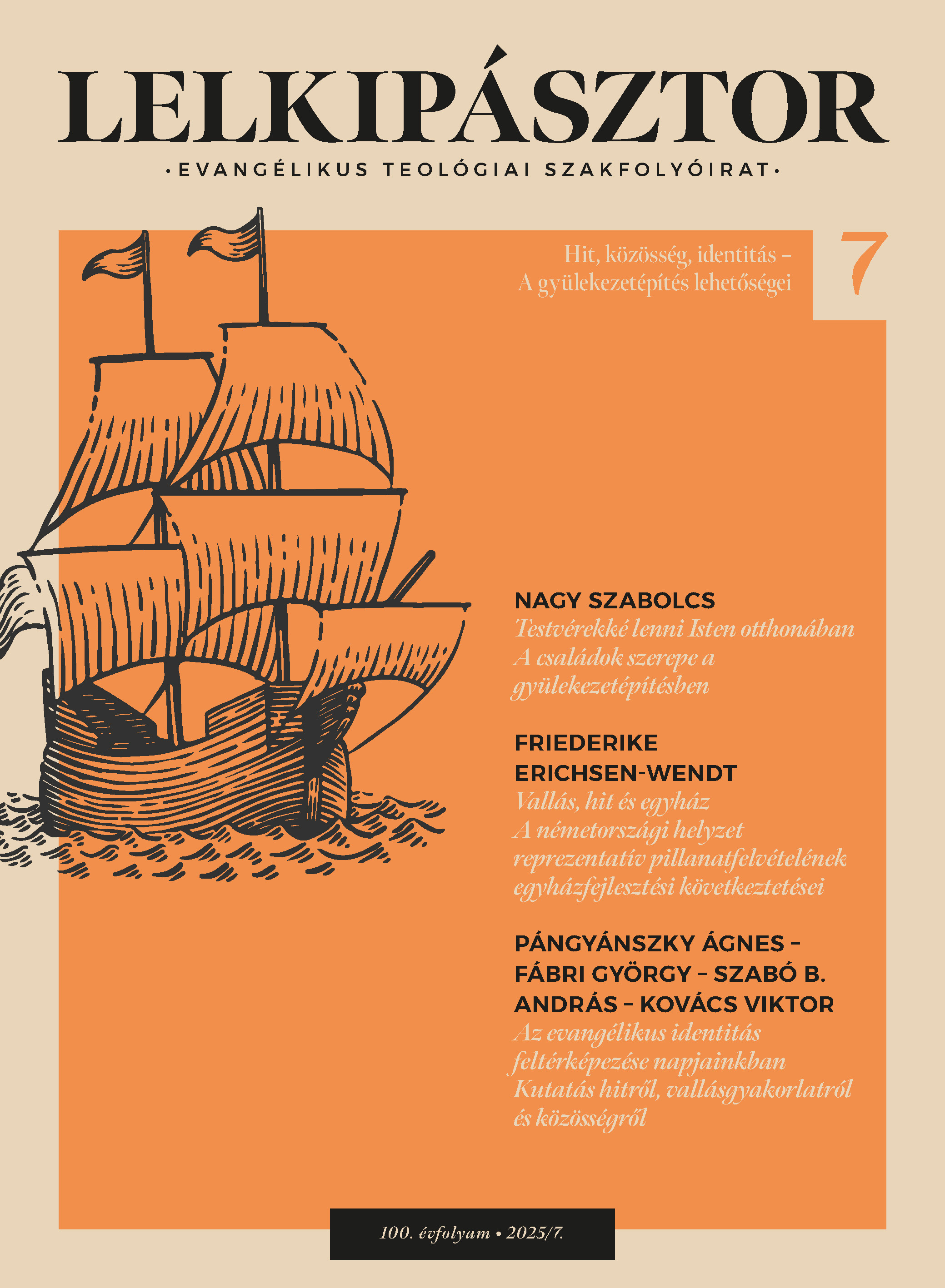Mapping Lutheran Identity Today
A Study on Faith, Religious Practice and Community
Abstract
This study explores contemporary expressions of Lutheran identity through a survey initiated by students and faculty of the Lutheran Theological University in Hungary during the 2021–2022 academic year. The research aimed to investigate denominational affiliations, religious practices, and future perspectives among members of the Evangelical Lutheran Church in Hungary. Based on responses from 762 participants, cluster analysis identified various religious identity profiles. The findings highlight that Christ-centered faith, knowledge of Lutheran teachings, and communal affiliation are core elements of Lutheran identity. While tradition remains significant, the results also point to the importance of conscious faith choices and community building, alongside generational differences and increasing social sensitivity as key challenges for the church's future.
References
Lenski, Gerhard 1961. The Religious Factor. A Sociological Study of Religion’s Impact on Politics, Economics, and Family Life. Doubleday, New York.
Nagy Péter Tibor 2021. Vallásosság – történet – szociológia. Iskolakultúra, Pécs. (Iskolakultúra könyvek 53.) Web: https://mek.oszk.hu/22100/22109/. (Megtekintés: 2025. április 25.) https://doi.org/10.14232/IQKONYV.Nagy.2021
Glock, Charles Y. – Stark, Rodney 1965. Religion and Society in Tension. Rand McNally, Chicago.
Alwin, D. F. – Felson, J. L. – Walker, E. T. – Tufis, P. A. 2006. ‘Measuring religious identities in surveys. Public Opinion Quarterly, 70. évf. 4. sz. 530–564. o. https://doi.org/10.1093/poq/nfl024

This work is licensed under a Creative Commons Attribution-NonCommercial-NoDerivatives 4.0 International License.




